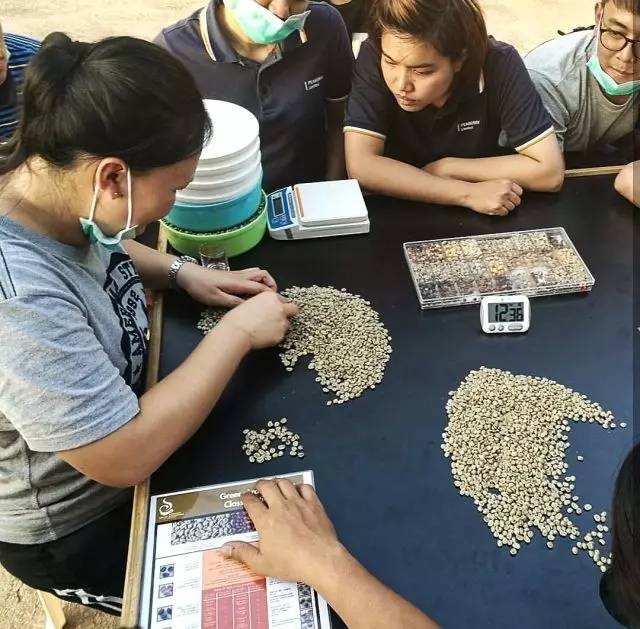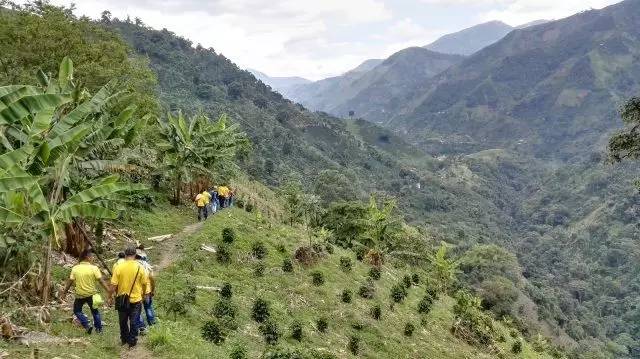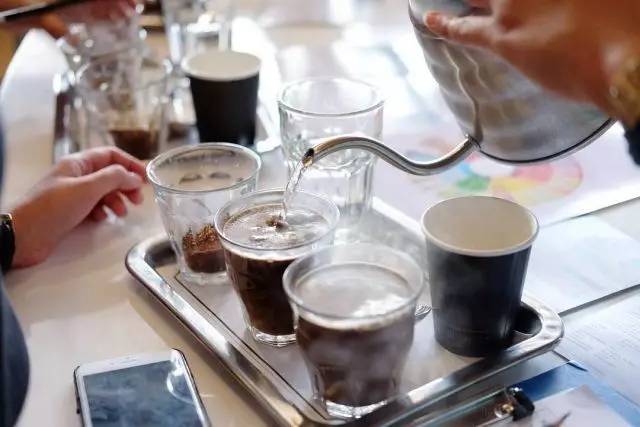Six methods to improve the roasting technology of coffee
Follow the caf é (Wechat official account vdailycom) and found that Beautiful Cafe opened a small shop of its own.
Six methods to improve the roasting technology of coffee
The best coffee roasters never stop learning. It may sound like a clich é, but it is. Try different roasters, different coffee beans, develop different baking curves, challenges and attempts will never stop. It's a lot of fun to bake coffee and discover new flavors. Tim Wendeboe, the 2004 world baristas champion, gave his six tips for improving baking skills.
1. Know your coffee and raw beans.
Before you can learn roasting and think about complex theories, you need to start with the basics of roasting-know your coffee beans.

This includes tasting / understanding the defective flavor of coffee, tasting coffee from different regions, tasting different varieties of coffee, tasting coffee with different treatments, and so on. For example, you don't like woody, but the coffee beans you bake are old beans, and no matter how you improve the roasting technique / baking curve, you will never remove the woody flavor from the coffee, and you can't bake the stale coffee into floral and fruity aromas. It's like a chef will never cook delicious food unless he or she is very familiar with the raw materials used in cooking.
The quality of raw beans is very important, and high-quality raw materials ensure that you can easily show their flavor characteristics in baking. Sometimes it is inevitable to bake some low-quality coffee beans. You can learn from the process of baking low-quality coffee, but you can't turn low-quality coffee into high-quality coffee by roasting.
To improve the roasting skills, it is necessary to seriously study the raw coffee beans, understand the physical characteristics of different raw beans, how these differences affect the heat absorption of coffee beans during baking, and how to affect the shaping of baking flavor.
two。 Learn how to taste coffee
A good baker must be a good coffee tasting expert. It is recommended that bakers learn sensory courses such as Q grader. These sensory courses can help you understand the various characteristics of raw coffee beans, what the flavor / taste of these characteristics is, and why they are formed. . The knowledge of these courses can also help you taste your own roasted coffee and help you establish a systematic flavor vocabulary to describe coffee. Learning the coffee "language" used in sensory courses allows you to communicate smoothly with your peers.
3. Learn coffee brewing and extraction
A good baker needs to know not only raw beans but also how to make coffee.

Bakers don't have to be baristas, but bakers need to know how to make their coffee. For example: the roaster cup tests his own roasted coffee, the roaster does not know the brewing knowledge, and the bean grinder is set too thick, resulting in insufficient coffee extraction (alcohol thickness is not enough). At this time, the roaster will mistakenly correct the baking degree (deepen the roasting degree) to obtain more alcohol thickness. Therefore, in order to better evaluate the roasting effect of coffee, roasters should know the knowledge of coffee extraction.
4. Understand the coffee industry chain
Bakers should know every step of the industry chain (from seeds to cups).

In 2015, Tim bought the Finca el Suelo Coffee Plantation in Huila, Colombia. Tim pointed out that the involvement in coffee cultivation has given him a deep understanding of the coffee industry chain, including coffee processing, geographical features, the impact of climate change on coffee, how to choose to buy raw coffee beans, how to sell coffee at a price, and how to promote seasonal coffee in coffee shops. His understanding of the coffee industry chain has changed many of his previous views and practices on coffee.
5. Attach importance to feedback
Bakers can learn baking knowledge from books, courses and websites, as well as from customer feedback.
Customer feedback is both positive and negative. Bakers should relax their mindset, treat customer feedback with an open mind, and regard customer feedback as an opportunity to improve and challenge their technical ability. If the baker wants to improve, don't be afraid to fail, don't be afraid to admit that your baking will have shortcomings, and customer feedback may bring you new advice and knowledge.
It is harmful for bakers to reject customer feedback or accept customers' opinions without consideration. Bakers should always try new practices, sum up experience and improve technology on the basis of experimental results, and not just rely on hearsay.
6. Strike a balance between technology and taste
Taste is the ultimate criterion for testing coffee roasting. Does this mean that bakers don't attach importance to science and technology and just trust their taste buds? Bakers should rely on modern science and technology to achieve the goal of baking stability and consistency. For example, ColorTrack laser color value analysis system is used to monitor baking chromaticity, and Cropster is used to record baking curves in real time.

Modern scientific equipment helps to improve the consistency of baking, but it is not enough to rely on equipment alone. Bakers should cultivate their own taste buds / taste and taste their own baked coffee.
The baking data provided by scientific equipment is only part of the whole baking operation, the same data can be obtained by different baking methods, but the taste will be completely different. Science and technology / equipment can not replace the baker's technology, but it can make the baker and his baking more stable.
Important Notice :
前街咖啡 FrontStreet Coffee has moved to new addredd:
FrontStreet Coffee Address: 315,Donghua East Road,GuangZhou
Tel:020 38364473
- Prev

Coffee beans purchase technology, how to buy roasted beans for beginners?
# 1 what kind of coffee utensils do you use to brew coffee? it is best to tell the clerk what kind of coffee utensils you are using. In this way, the shop assistant can recommend suitable coffee beans for you. In addition, you may also be able to share your experience with the shop assistant. # 2 your favorite coffee taste to the clerk to describe what kind of coffee you like, there is no need to be like a specialist
- Next

The aroma of roses in coffee
Following caf é comments (Wechat official account vdailycom) found that the rose aroma of coffee in the coffee that is difficult to describe is sometimes very difficult to describe in the actual roasting work. Our roaster tested a beautiful washed Ethiopian Kelloo coffee, and all people described the sweetness and acidity of this coffee as: orange.
Related
- Beginners will see the "Coffee pull flower" guide!
- What is the difference between ice blog purified milk and ordinary milk coffee?
- Why is the Philippines the largest producer of crops in Liberia?
- For coffee extraction, should the fine powder be retained?
- How does extracted espresso fill pressed powder? How much strength does it take to press the powder?
- How to make jasmine cold extract coffee? Is the jasmine + latte good?
- Will this little toy really make the coffee taste better? How does Lily Drip affect coffee extraction?
- Will the action of slapping the filter cup also affect coffee extraction?
- What's the difference between powder-to-water ratio and powder-to-liquid ratio?
- What is the Ethiopian local species? What does it have to do with Heirloom native species?

